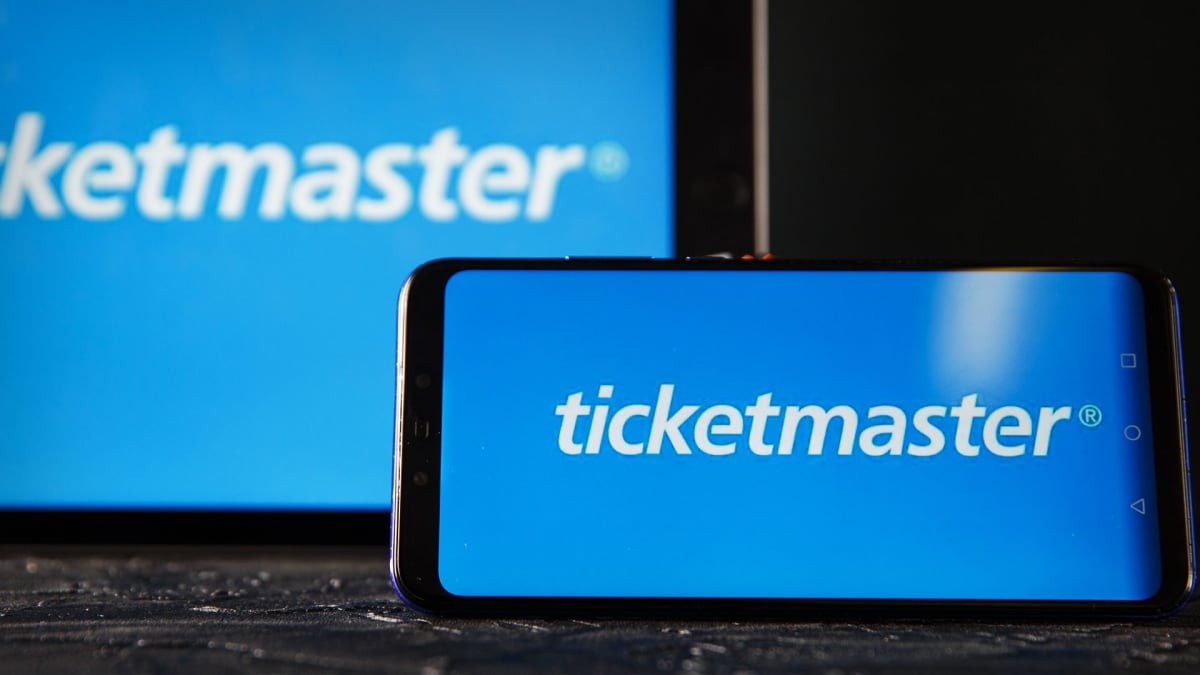
The only people who like Ticketmaster are executives at Ticketmaster and its parent company LiveNation. Everyone else hates Ticketmaster.
If you doubt this statement, ask anyone who has paid a service fee of anywhere between 17% to 28% of the ticket’s face value. Any time a major tour goes on sale, jump on social media and you’ll see that people have numerous gripes with this company, and the reasons are manifold.
Don’t Miss: Taylor Swift Finally Makes The U.S. Government Go After Ticketmaster
There are the numerous add-on and hidden fees, obviously. But it’s also the case that the company can’t seem to keep tickets for hot tours by the likes of Taylor Swift or Bruce Springsteen out of the hands of scalpers and third-party resellers like StubHub, where they often resell for the price of a mortgage payment.
In Swift’s case, even a Pre-Verified system that was supposed to get tickets in the hands of actual fans wasn’t able to withstand the bots, as many Swifties Tweeted about waiting in virtual lines for hours only to watch seats disappear.
This might not be an accident, as outlets such as Rolling Stone reported that the company will enlist resellers to “grab large batches of tickets from its site and then flip them for higher prices on a Ticketmaster-owned, invite-only platform called TradeDesk and other outlets. “Ticketmaster gets extra fees from the pricier resale tickets on top of its fees from selling the original ticket,” the report noted.
Recently, Ticketmaster and LiveNation (LYV) have drawn even more ire by introducing highly expensive platinum tickets, as well as dynamic pricing, where the price of a ticket fluctuates based on the given market demand at any moment. So basically, it’s like the stock market, only for tickets, and people very much do not like it. (It's also not a new practice, but it's become more common in recent years.)
For Springsteen’s current tour, this led to tickets sometimes going for as high as $4,400, which was so extravagant even guitarist Steven Van Zandt entered the chat to clarify it’s certainly not his fault. But it's also the case that no one is forced to adopt this model, as Springsteen admitted to Rolling Stone.
What Legendary Band Said No To Dynamic Pricing?
Many artists, publicly and privately, have pushed back against Dynamic Pricing, and now goth legends The Cure have gone the extra mile.

Mark Metcalfe/Getty
The Cure, who were inducted into the Rock & Roll Hall of Fame in 2019, have been heroes to weird kids for five decades straight. When frontman Robert Smith guest starred on “South Park” in 1997, Stan said “‘Disintegration’ is the best album ever!,” and he was right.
In a social media message, as reported by Stereogum, timed with the the opening of Verified Fan registration through Ticketmaster, the band confirmed they will be eschewing Platinum tickets and Dynamic pricing, and cracking down on scalping.
WE WANT THE TOUR TO BE AFFORDABLE FOR ALL FANS, AND WE HAVE A VERY WIDE (AND WE THINK VERY FAIR) RANGE OF PRICING AT EVERY SHOW. OUR TICKETING PARTNERS HAVE AGREED TO HELP US STOP SCALPERS FROM GETTING IN THE WAY; TO HELP MINIMISE RESALE AND KEEP PRICES AT FACE VALUE, TICKETS FOR THIS TOUR WILL NOT BE TRANSFERABLE. IF SOMETHING COMES UP THAT PREVENTS A FAN FROM BEING ABLE TO USE A TICKET THEY HAVE PURCHASED, THEY WILL BE ABLE TO RESELL IT ON A FACE VALUE TICKET EXCHANGE.
UNFORTUNATELY, DESPITE OUR DESIRE TO PROTECT OUR LOW TICKET PRICES FOR FANS, THE STATES OF NY, IL AND CO MAKE THIS VERY DIFFICULT — THEY ACTUALLY HAVE LAWS IN PLACE THAT PROTECT SCALPERS! FOR SHOWS IN THESE STATES WE URGE FANS TO BUY OR SELL TICKETS TO ONE ANOTHER ON FACE VALUE TICKET EXCHANGES LIKE TWICKETS.LIVE AND CASHORTRADE.ORG. FANS SHOULD AVOID BUYING TICKETS THAT ARE BEING RESOLD AT INFLATED PRICES BY SCALPERS, AND THE SITES THAT HOST THESE SCALPERS SHOULD REFRAIN FROM RESELLING TICKETS FOR OUR SHOWS
Ticketmaster Reportedly Looking At Cracking Down On Fees
In his State of the Union, President Biden announced plans to cut down on Junk Fees, including Ticketmaster’s add-on fees, and in January, following criticism from California representative Katie Porter, Rhode Island representative David N. Cicilline and New Jersey representative Bill Pascrell, Jr., Congress began an investigation into Ticketmaster and Live Nation, which control roughly 70% of the live music and ticketing markets, and which many critics and lawmakers feel is a monopoly that needs to be broken up.
In a possible attempt to quell public outrage and prevent an antitrust lawsuit, Ticketmaster has begun floating a few reforms, according to a Billboard report. They've also begun advocating for FAIR Ticketing anti-scalping reforms.
The company, which repeatedly states it only makes money from a portion of service fees, which are determined by the venue, and that the full cost of the ticket, the price of which it does not set, goes to the artist, plans to move away from the “drip pricing” model, which gradually introduces additional service charges at checkout, such as when you first click on a ticket and then head to a different page to complete your purchase, only to discover the service changes.
Instead, the total cost of the ticket — including fees — will be seen upfront, thus reducing the sticker shock.
But will being upfront about fees be enough to make people stop hating Ticketmaster? Or will Ticketmaster actually have to lower them?







